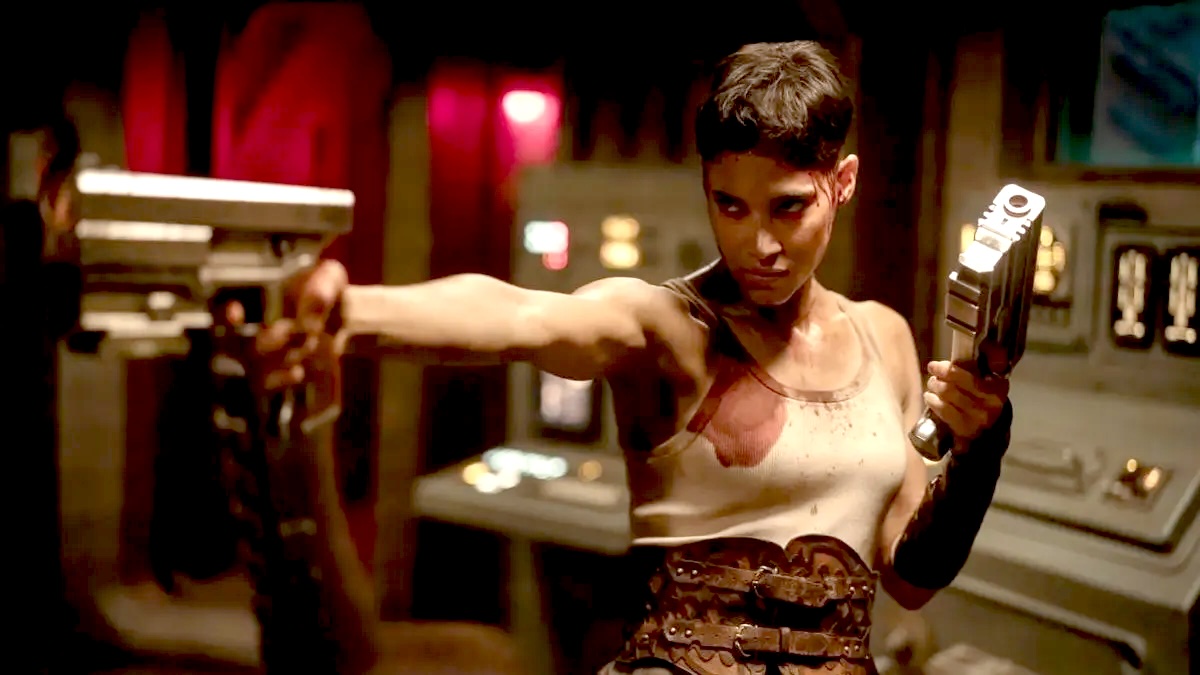Can Anyone Explain Why ‘Rebel Moon’ Felt the Need To Be Films Instead of Games?

Full disclosure: I cannot think of a deader horse to beat than criticizing Rebel Moon, Zack Snyder’s new sci-fi franchise that numbers two films as of earlier this month, thanks to The Scargiver, and also the cinematic equivalent of a fatal faceplant.
Consequently, I have little to no interest in spending any longer on the insultingly amateurish one-two punch of A Child of Fire and The Scargiver than need be, and that is also due in part to the fact that I’ve run out of ways to express the disdain that and I and many others feel for these two stentorian nothing-burgers.
Instead, let’s talk about the possibility of Rebel Moon‘s redemption arc and why the single greatest mistake that Zack Snyder made with this IP was propping it up on Netflix rather than Steam.
Rebel Moon should have been a game
Now, I have not read any of the novelizations or the comic books that have spun out of Rebel Moon, so I can’t speak to the quality of the franchise across all of its media. This is beside the point, however, as Rebel Moon very clearly revolves around its films as the main hub from which this other media grows. This hub should have been a game.
Whether that game should have been a video game or a tabletop role-playing game is neither here nor there, but textually speaking, both A Child of Fire and The Scargiver read like game set dressing far more than the films they’re so painfully trying to be. Indeed, the former is quite literally a two-hour recruitment of party members who effectively audition for said recruitment by showing off how strong and talented they are, while the latter is a two-hour real-time strategy sci-fi standoff (complete with a slo-mo build phase) where all the party members prove themselves as worthy units for the encounter. Both are presented with nary a single iota of proof that the screenwriters understand how to tell a story, with the exposition switch seemingly stuck in the “on” position throughout as Snyder and company bang their action figures together in place of actual characterization; not even the coolest, deepest lore in the universe can make up for a sin like that.
It’s only a sin, however, in the context of a film, where the events actually have to mean something beyond one team winning and their opponents losing. Perhaps they mean something to Snyder, but we audiences can’t read his mind; to us, Rebel Moon’s loud, dreary backdrop, clumsy worldbuilding, and absence of dramatic tension is all we can be expected to glean. But in the context of a game, there’s so much more room for this particular strand of Snyder’s creativity to flourish. Need to get an exposition dump off your chest? Slap it down in a tabletop role-playing game rulebook, and stylize it however you like, be it a wiki-esque entry or a narration of sorts. Want to coordinate a massive sci-fi battle without needing to worry about the pesky build-up and storytelling beats needed to make it a worthwhile watch? Set it up on a game mat, enlist a game designer to help you create interesting units with special strengths and weaknesses, and watch sincere endorphins blossom as your players strategically overcome their latest encounter with the Motherworld.
Indeed, by all observable measures, there’s no logical reason why Rebel Moon’s mainline medium had to be film, and it’s glaringly apparent that it would have been more at home in the gaming realm. And here’s the kicker: That could have very well been the case. At the time of writing, Super Evil Megacorp is developing a four-player co-op game set in the Rebel Moon universe for Netflix Games, as announced by Snyder himself. Prior to this, Evil Genius Games had been developing a tabletop role-playing game using the Rebel Moon IP, but that deal has since been terminated in a particularly messy way, per Variety.
So I ask again: Why was it so important for Rebel Moon to revolve around two abhorrently soulless Netflix films when it’s severely apparent that Snyder’s creative tendencies for this IP would have lent themselves to games to unfathomably greater effect? With The Scargiver, he and his collaborators wanted their big Endgame-esque battle without earning even an impression of payoff or the audience’s investment; it’s completely selfish and childish filmmaking, and Rebel Moon, in its current state, does not deserve to be financially backed for feature films. That money should instead go towards producing the already in-development video game and finding another buyer for a tabletop project, because it’s clear that Snyder adores Rebel Moon, and as a professional creative, the responsible thing to do would be to ensure that others can sincerely adore it, too. Maybe, in order to do that, a new medium needs to take the spotlight.
(featured image: Netflix)
Have a tip we should know? [email protected]
